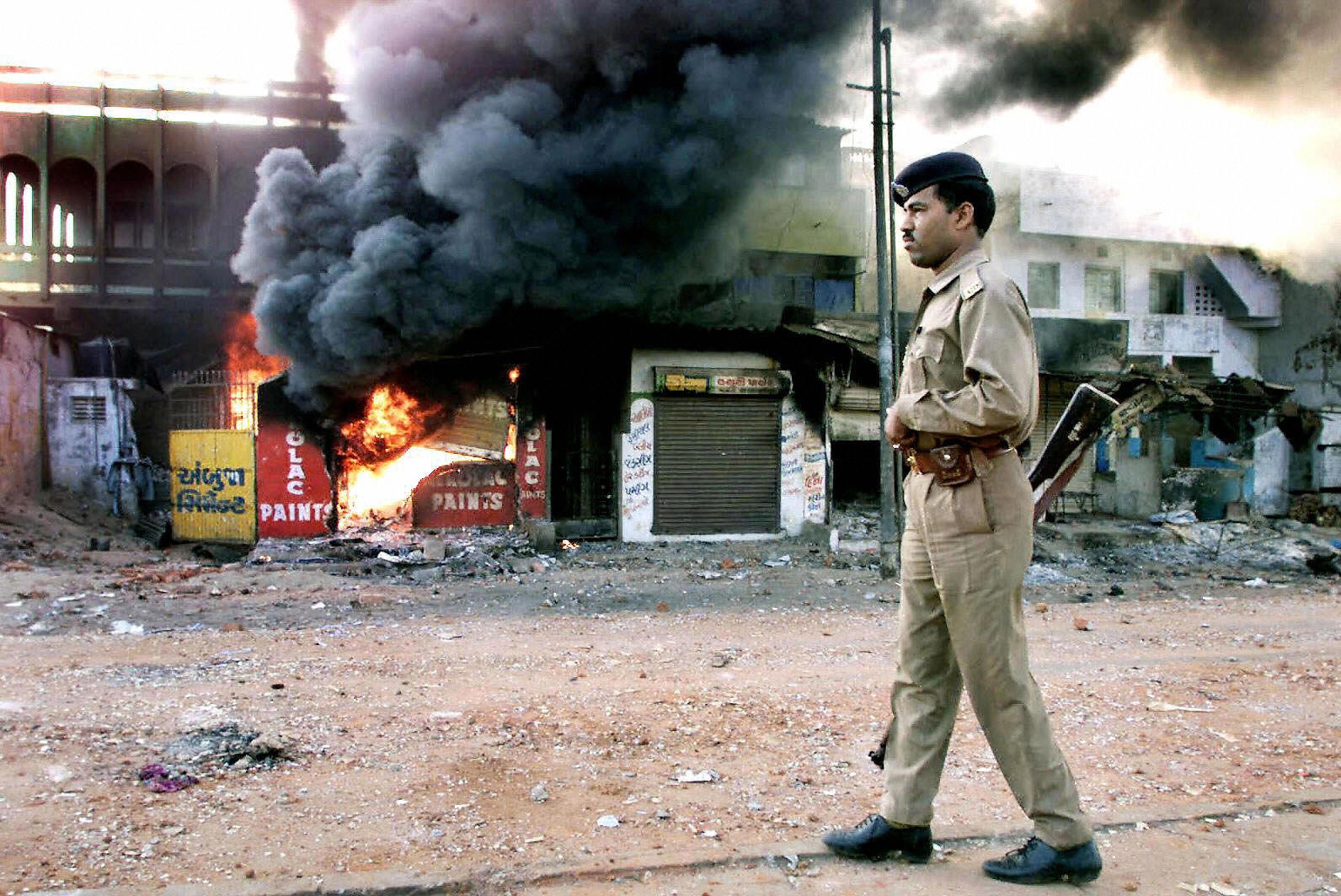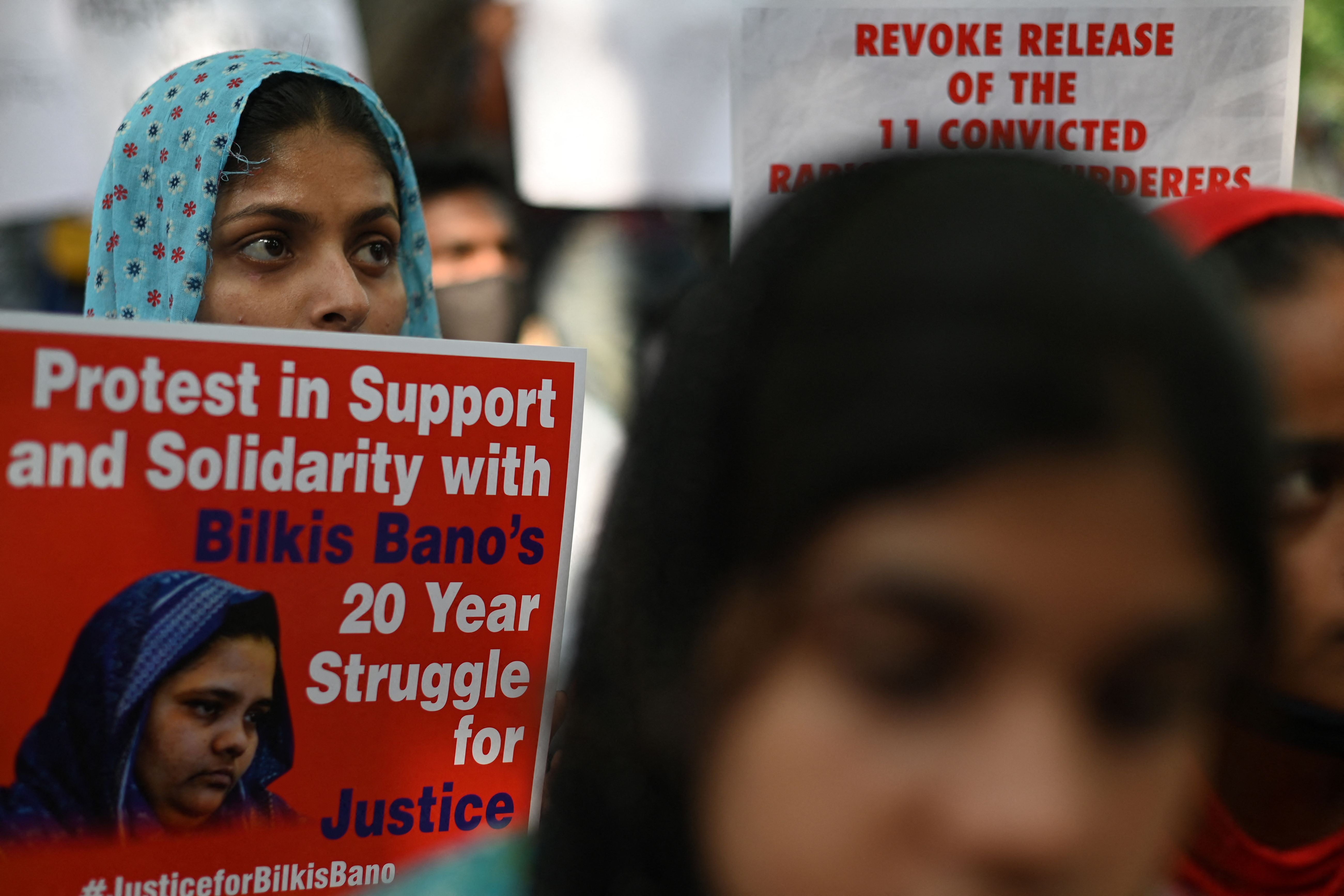Cases collapse against 27 accused of rape and murder in India’s 2002 religious riots
Police had charged 39 people, of which 12 died during a two-decade-long trial

An Indian court has acquitted 27 people accused of being involved in the 2002 religious riots in Gujarat state, concluding that the prosecution had failed to prove the case.
The court noted that 190 witnesses examined during the trial either “turned hostile”, had “not supported the prosecution’s case” or were “unable to recall facts or identify the accused”.
The verdict pertained to violence that was unleashed across the state in the aftermath of the Sabarmati Express massacre on 27 February.
Gujarat is prime minister Narendra Modi’s home state and he was the chief minister when the riots had broken out.
Communal violence had broken out after 59 people, mostly volunteers of Hindu organisations, were killed on the Sabarmati Express train when their coach was set on fire at Godhra station by a suspected Muslim mob.
The incident led to violence across the state on an unprecedented scale. While government figures said over 1,000 people were killed in post-Godhra violence, unofficial estimates said over 2,000 people – mostly Muslims – were killed.
One such significant incident was the killing of 11 people in Kalol city in the Gandhinagar district. About 38 people from the minority community were fleeing in the wake of riots, when the vehicle they were traveling in overturned as the driver attempted to avoid a mob, reported The Print.
The mob targeted the group and 11 of them were burnt alive, while a woman was gang-raped and her toes were cut off, reported news portal Scroll.in. The remaining 17, including an eight-year-old, managed to escape.
The police charged a total of 39 people for the violence. Of this, 12 died before the two-decade long trial could be completed.
This is the latest acquittal in the riots in Mr Modi’s home state. In January, 22 undertrials accused of killing 17 people were acquitted due to lack of evidence in another city, Halol.
Earlier in August, 11 convicts serving life sentences for the gang-rape of a pregnant woman, Bilkis Bano, and the murder of seven of her family members during the 2002 riots were released by the state government.

Earlier in January, the BBC released a documentary on Mr Modi’s role in the 2002 religious riots.
The documentary series, titled India: The Modi Question, aired in January, includes a previously unpublished report from the British Foreign Office that held Mr Modi “directly responsible” for the “climate of impunity” that enabled the violence to take place.
Mr Modi has denied accusations of any wrongdoing. Suspicions that Mr Modi quietly supported the riots led the US, UK and EU to deny him a visa at the time, a move that was later reversed.
Blocking the series soon after its release, the federal government invoked emergency powers under the information and technology law, seeking the removal of clips from social media.
Last June, India’s Supreme Court cleared Mr Modi of any wrongdoing in relation to the 2002 riots after it dismissed a plea challenging the findings of a Special Investigation Team (SIT) report that earlier exonerated him as well as 62 other senior government officials.
India’s foreign ministry dubbed the BBC documentary series a “propaganda piece designed to push a particularly discredited narrative” that lacks objectivity and slammed it for “bias” and “a continuing colonial mindset”.
Join our commenting forum
Join thought-provoking conversations, follow other Independent readers and see their replies
Comments
Bookmark popover
Removed from bookmarks